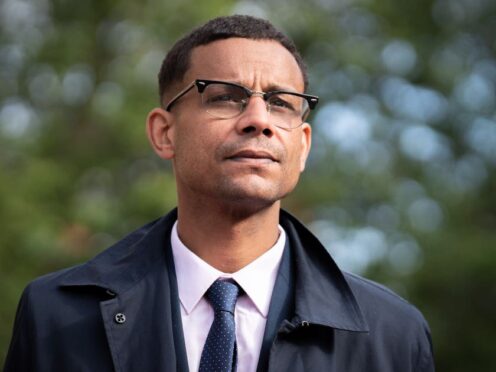
Teachers will debate whether a union should publish and circulate educational resources to “increase understanding of Palestine and Israel”.
Delegates at the National Education Union (NEU) annual conference in Bournemouth next week are due to vote on whether the union should support the Palestine Solidarity Campaign (PSC).
A motion, due to be debated at the conference of the largest education union in the UK, accuses Israel’s government of being “racist” and suggests it is the “main driver” of the conflict, violence and war.
The ongoing war in Gaza was sparked by Hamas’s deadly raid into Israel on October 7 that killed 1,200 people and saw militants seize about 250 hostages.
Israel’s retaliatory strikes have left more than 30,000 Palestinians dead, according to the Hamas-run Gaza health ministry.
The motion says: “The UK Government must stop being an enabler of Israel’s apartheid policies, violence and anti-Palestinian racism.”
It suggests it is trying to “criminalise peaceful tactics of boycott, divestment and sanctions promoted by the global Palestine solidarity movement”.
The motion calls on the union’s executive to reaffirm its support for PSC and Stop the War Coalition and support campaigning “to defend the right to pursue boycott, divestment and sanctions tactics”.
It adds that the executive should “publish and circulate educational resources that members can use to increase understanding of Palestine and Israel”.
When asked about the motion, Daniel Kebede, general secretary of the NEU, said: “I think that teachers are very nervous about having such discussion around such difficult subjects in school at the moment, and that will perhaps be made quite clear from some of the speakers at the conference.
“It’s a very sensitive issue. Very difficult. In our union, we’ve been very clear that we absolutely condemn the attack from Hamas and the taking of hostages.”
But he added that there was a “real humanitarian disaster” and young people wanted to talk about it.
Mr Kebede said: “Schools are the best place for young people to talk about difficult subjects, but I think there is a nervousness amongst the profession.”
Department for Education (DfE) guidance says teachers should avoid expressing their own political views to pupils unless they are confident it will not amount to promoting that view to pupils.
When asked about the teaching union taking a political stance on the conflict, Mr Kebede said: “Our union has a long history of standing in solidarity with the Palestinian people. It’s a union position.
“Teachers dealing with this issue – discussing this issue – will do so in a way that’s supportive and allows young people to form their own opinions around a world that is incredibly complex.”
Mr Kebede, who is due to speak at a Palestine solidarity demonstration on Saturday, said: “I think the majority of the public clearly want a ceasefire. They want to see humanitarian aid flow into Gaza.
“It’s not a position that is, I think, far from where the majority of people are.”
Conservative MP Robert Halfon, who resigned as minister for skills, apprenticeships and higher education this week, said: “Perhaps the NEU should concentrate on teaching and education.”
Mr Halfon, who is Jewish, said: “If this motion was passed, the NEU would be an uncomfortable place for some Jewish members. Especially after the horrific atrocities by Hamas from October 7.”
Education Secretary Gillian Keegan said: “These motions reflect the NEU’s divisive ideology, which I don’t believe is representative of our teachers.
“These motions are wholly inappropriate and completely ignore the horrific terrorist attacks committed by Hamas on October 7.
“Teachers have a duty to remain politically impartial and to ensure all sides of contested views are presented fairly and without bias or prejudice.
“These proposals will cause significant hurt to members of the Jewish community and the thousands of Jewish children and parents in British schools.”
Responding to the Education Secretary’s remarks, Mr Kebede said: “The union has a proud tradition of internationalism, and we look forward to high-quality and well-informed debate on these issues next week.
“Members bring important issues to be discussed at conference which they feel strongly about.
“It is disappointing that the Secretary of State has not taken the opportunity to comment on the wide range of other topics on the conference agenda – including the crises in school/college funding, recruitment and retention, and SEND, crumbling school buildings and a failing accountability regime – to name but a few of the vital issues facing our education system.
“Ms Keegan’s silence on these matters is deafening.”

Enjoy the convenience of having The Sunday Post delivered as a digital ePaper straight to your smartphone, tablet or computer.
Subscribe for only £5.49 a month and enjoy all the benefits of the printed paper as a digital replica.
Subscribe